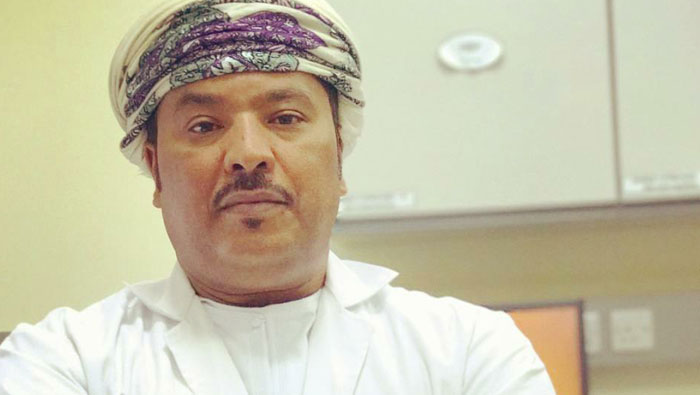
Muscat: As many as six in 10 Omanis carry a gene of inherited blood disorder, according to a government agency created to help citizens live a healthy life.
To combat inherited disorders, the first-of-its-kind genetics testing centre is training medics to tackle hereditary blood disorders among Omanis.
The number of babies born in Oman with hereditary conditions is also above the global average, experts warn.
Educational campaigns and medical training are now underway, after it was revealed that as many as 60 per cent of Omanis carry some kind of hereditary blood disorder.
Further, the cost of treating these disorders is a heavy burden on government coffers, according to the National Genetic Centre.
The unit is the first in the GCC, based in Oman, and tackles health issues to ensure Oman’s population remains healthy. They are working to place a genetic counselling unit in every governorate in Oman to assist with health concerns.
“Between 55- 60 percent of Omanis carry a gene that causes inherited blood disorders,” said Dr Musallam Al Araimi, Head of Genetic Counseling and Genetic Education Department at the National Genetic Centre.
**media[910362]**
The costs of funding treatment for such a large section of the population has spurred medical experts to seek solutions. The annual bill for treating sickle cell anaemia tops OMR40 million. “Hereditary diseases in Oman are high compared to the world average, which is very worrying,” according to Al Araimi.
“Globally, 4.5 per cent of children are born with genetic problems, whereas the average in Oman is between 6.5 to 7 per cent.”
The treatment of patients with sickle cell anaemia in the Sultanate is estimated to cost OMR40 million annually, while the total cost of treatments for patients with thalassaemia is OMR15 million annually,” said Al Araimi.
“Only 10 per cent of these costs are needed to launch the prevention programme,” he added.
“A training course in genetic counselling began in September 2015 and lasted 16 months. The course was divided into nine modules, each one studying a specific genetic condition that is common to Omanis. In addition to teaching the skills of counselling, each module was divided into a theoretical, practical, and lab day,” Al Araimi added.
Of note, eight nurses specialising in genetic counselling graduated in the first group.
“We are now in the process of accepting the second group in September, and two of the students are from GCC countries.” Al Araimi said.
The programme at the National Genetic Centre is the first-of-its- kind in the region.
The first part of the programme was for nurses from different governorates. while the next programme will be designed for doctors.
Dr. Al Araimi added, “The idea of the programme is to establish a genetic counselling unit in every governorate of the Sultanate, which aims to specialise in genetic counselling as a treatment and preventative measure when dealing with genetic disorders. Secondly, it is to be used to raise public awareness, by informing the public about genetic disorders and premarital testing.”
If parents carry a genetic disorder, there is a 25 per cent chance of having an affected baby.
“Our aim is to form a database of the various genetic diseases in the Sultanate. The issue Oman faces is in recessive diseases. A person that carries the disorder would not know they are carrying it, so when he marries another carrier there is a 25 percent chance of having an affected baby,” Al Araimi said.
“Recessive diseases constitute up to 51 per cent of all genetic disorders in Oman, so they have to be targeting and screened,” Al Araimi added.
“People’s awareness about genetic disease is increasing, but which have yet to reach a point where the level of information is satisfactory, which means more awareness campaigns should be initiated and new media tools should be utilized,” Al Araimi said.
Al Dhakhiliah governorate ranked first in the percentage of sickle cell anaemia cases, whereas Northern Al Batinah was first in thalassaemia.
“I stress that we need more public awareness regarding premarital testing for inherited blood disorders. The tests are available in every health centre, poly clinic and hospital. Please do not get involved in a marriage before being tested, and get the results so you will not be subjected to complications after marriage,” Dr Al Araimi said.